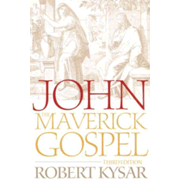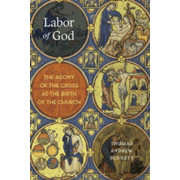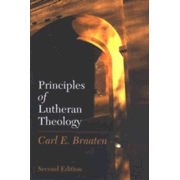THE GOSPEL comes to us this week from Saint John. Within the
text provided, we read about the raising of Lazarus… given as a sign of God’s
powerful love freely given.
Now a certain man was
ill, Lazarus of Bethany,
the village of Mary and her sister Martha. It was Mary who anointed the Lord with
ointment and wiped his feet with her hair, whose brother Lazarus was ill. So
the sisters sent to him, saying, "Lord, he whom you love is ill." But
when Jesus heard it he said, "This illness is not unto death; it is for
the glory of God, so that the Son of God may be glorified by means of
it."
Now Jesus loved Martha and her sister and
Lazarus. So when he heard that he was ill, he stayed two days longer in the
place where he was. Then after this he
said to the disciples, "Let us go into Judea
again."
The disciples said to him, "Rabbi, the
Jews were but now seeking to stone you, and are you going there
again?"
Jesus answered, "Are there not twelve
hours in the day? If any one walks in the day, he does not stumble, because he
sees the light of this world. But if any
one walks in the night, he stumbles, because the light is not in him."
Thus he spoke, and then he said to them, "Our friend Lazarus has fallen
asleep, but I go to awake him out of sleep."
The disciples said to him, "Lord, if he
has fallen asleep, he will recover."
Now Jesus had spoken of his death, but they
thought that he meant taking rest in sleep. Then Jesus told them plainly,
"Lazarus is dead; and for your sake I am glad that I was not there, so
that you may believe. But let us go to him." Thomas, called the Twin, said
to his fellow disciples, "Let us also go, that we may die with
him."
Now when Jesus came, he found that Lazarus had
already been in the tomb four days. Bethany was near Jerusalem, about two miles
off, and many of the Jews had come to Martha and Mary to console them
concerning their brother.
When Martha heard that Jesus was coming, she
went and met him, while Mary sat in the house. Martha said to Jesus,
"Lord, if you had been here, my brother would not have died. And even now
I know that whatever you ask from God, God will give you."
Jesus said to her, "Your brother will
rise again."
Martha said to him, "I know that he will
rise again in the resurrection at the last day."
Jesus said to her, "I am the resurrection
and the life; he who believes in me, though he die, yet shall he live, and
whoever lives and believes in me shall never die. Do you believe
this?"
She said to him, "Yes, Lord; I believe
that you are the Christ, the Son of God, he who is coming into the world."
When she had said this, she went and called her sister Mary, saying quietly,
"The Teacher is here and is calling for you." And when she heard it, she rose quickly and
went to him.
Now Jesus had not yet come to the village, but
was still in the place where Martha had met him. When the Jews who were with
her in the house, consoling her, saw Mary rise quickly and go out, they
followed her, supposing that she was going to the tomb to weep there.
Then Mary, when she came where Jesus was and
saw him, fell at his feet, saying to him, "Lord, if you had been here, my
brother would not have died." When Jesus saw her weeping, and the Jews who
came with her also weeping, he was deeply moved in spirit and troubled; and he
said, "Where have you laid him?" They said to him, "Lord, come
and see."
Jesus wept.
So the Jews said, "See how he loved him!"
But some of them said, "Could not he who
opened the eyes of the blind man have kept this man from dying?"
Then Jesus, deeply moved again, came to the
tomb; it was a cave, and a stone lay upon it. Jesus said, "Take away the
stone." Martha, the sister of the dead man, said to him, "Lord, by
this time there will be an odor, for he has been dead four days."
Jesus said to her, "Did I not tell you
that if you would believe you would see the glory of God?"
So they took away the stone. And Jesus lifted
up his eyes and said, "Father, I thank thee that thou hast heard me. I
knew that you hear me always, but I have said this on account of the people
standing by, that they may believe that you did send me."
When he had said this, he cried with a loud
voice, "Lazarus, come out."
The dead man came out, his hands and feet
bound with bandages, and his face wrapped with a cloth. Jesus said to them,
"Unbind him, and let him go."
Many of the Jews therefore, who had come with
Mary and had seen what he did, believed in him… (John11:1-45a)
What Does It Take?
This story coming out from the gospel of John was intended
to bolster faith in his disciples that Jesus was indeed the Messiah. The writer
tried to prepare the readers’ minds for the good news of our Lord's own Resurrection
in the story told of salvation, and thus strengthen the resolve of those early
Christians. Reading this account given from a day which preceded Jesus own
death and Resurrection, the early churches of John could not say in Spirit that
resurrection was impossible.
However, we note as
the telling begins that Jesus answered the request for his presence, but he did
not go immediately. Yet the Son of God had gracious intentions even when he
seemed to delay. We can take from this delay, that whenever the work of divine deliverance
whether public or personal, seems far removed… it does not mean that healing is
denied. Indeed, God’s attention is not absent; it just may not abide favorably until
the right time.
 |
John, the Maverick Gospel, Third Edition By Robert Kysar |
At the time of the occasion,
the disciples thought that it was needless for Jesus to go to Lazarus. We might
guess that they wanted him to heal his friend without going to Bethany. Or possibly, it was thought that
they were already too late. As well, returning to Bethany, located just outside
the walls of Jerusalem, would expose them to danger. You see, they had just
fled the zealous powers of unbelieving persons.
 But note here! Lest
we judge the early disciples too harshly, we need to remember that today we also
often hope that good works will be done by someone else… especially if great peril
exists in the doing.
But note here! Lest
we judge the early disciples too harshly, we need to remember that today we also
often hope that good works will be done by someone else… especially if great peril
exists in the doing.
After several days
passed, Jesus went to Bethany in spite of hazard. He found that Martha’s house…
which once been a place of love, care and concern, was through death made a house of mourning. As Jesus walked by
grace toward her house, it is of little doubt that he went with a love to be expressed
in ways of mercy and comfort that was far greater than could be imagined.
Hearing that he approached,
Martha first went to meet him. She told him what he already knew. Lazarus was
dead. But Martha exhibited faith. She believed that Jesus could ask the Father for
anything, and it would be granted. We repeat for emphasis, his response to her
faith…
Jesus said to her,
"I am the resurrection and the life; he who believes in me, though he die,
yet shall he live, and whoever lives and believes in me shall never die. Do you
believe this?"
Martha answered, “Yes Lord, I believe…” Amid this
witness, Jesus provides that for God time is not a barrier. Indeed, Mary had
been sitting alone in the house. Her solitude at one time was an advantage for her
when she sat at Jesus’ feet. But in the day of loss, that same time of independence
disposed her toward being melancholy. Lazarus had been dead four days.
Here I believe that
John demonstrated much to his readers. He stressed that much time had passed. By
this I believe our author stressed that with God it is no harder to restore
life in one moment, than in another. It was commonly thought amongst the Jews
that after three days the spirit had completely left the body… surely by human
standards the expiration date had passed.
 |
Labor of God: The Agony of the Cross as the Birth of the Church By Thomas Andrew Bennett |
Jesus stated clearly to
Martha that he is the Resurrection and the Life. In every sense, John pointed out
to his readers that Jesus is the source, the substance… the first-fruits… the
very cause of life. For Lazarus, Martha and we believers living today,
therefore, death cannot have the last say. Jesus asked Martha if she believed
this Truth. We ask ourselves, as we who read such at Christ's feet and are taught
by him.., “Can we run from our solitude like Mary? Can we proclaim Christ in days
of unbelief and persecution?”
What of Loving Power?
Upon hearing this lesson read, the early church of John was
called by the writer to cast persecutions and death at God’s feet. We are called
as well to do this whenever we suffer any loss, and as the people of God we are
admonished by John to corporately “only believe” as we are assailed by times of
trial.
Notice that Jesus’
tender sympathy with faithless mourning was shown by tears. Whether it was tearful
anger at sin, or sorrow because of our human unbelief… we cannot know. We do
know, however, that he loved greatly. His feelings for mourning friends showed up.
He asked after the remains of the deceased man.
May the Holy Spirit guide your steps from this day forth, and forever more.
 |
Principles of Lutheran Theology Second Edition By Carl E. Braaten |
Jesus arrived at the
tomb. There he demonstrated that God does not let death have the final say. Being
a man of tears and acquainted with grief, Jesus Christ set an example in that
we too can be brought to tears in our comforting of the afflicted today. We too
can cry out, but not just for the passing and missing of someone deeply cared
about… but rather we are called to mourn a greater loss. We are to grieve the sinful
stubbornness and unbelief found in the world around us.
Finally, we surely are
to know through this lesson that we have not a High Priest who is distant from
our infirmities and finitude. Indeed, Jesus could have raised Lazarus by a
distant and silent exertion of his power and will. He could have acted in a
remote, unseen way. Instead, John told that God is intimately involved and willing
to shed tears. So should we be also involved in the deaths of those around us.
I emphasize that Jesus
provided a call for each of us spoken in full sight of others. Surely those whom
Christ loves also shall become sick and bodily die. This tells us that Jesus
came not to preserve his people from afflictions, for we still suffer under the
condemnation of the Law… but our Lord came into the world to save us from the
penalty of our sins. Therefore, we are not abandoned to the grave. Through the mercy of the
Father provided through his Son, death like sleep shall not eternally hold us.
For the church of John this lesson provided a prophetic call
as they were sent out into a hostile world. Harsh persecutions were fast upon
the young church, but here they were pronounced as not standing over against the
love of God. John told that Lazarus had been revived and had returned not only
to life, but to health! So it was told to be the future with John’s church as
they faced the world.
Indeed, the Church proclaimed
the gospel of God during the last years of the first century and on into the
next era. The Church had been separated, disdained, and declared dead by Jewish
authorities. But those churches of John were proven alive, though they were driven
into the catacombs that housed the dead. The Church endured to see God’s glory.
We are its descendants.
Consequently, this
good news comes to us today as we live in our own turbulent time. Politically
liberal and progressive powers of this modern world would yet assail faithful Christians
within the church. But here we are reminded by John that these things are not
new. We are encouraged by the Word of God that despair, isolation, and even death
shall not seize our day. Through the Word given by the Holy Spirit unto eternal
life we know that through believing in his redemptive power, we of the Church
eternal shall also see the glory of God. So it was then, and so it shall be now. Amen!
May the Holy Spirit guide your steps from this day forth, and forever more.
.




No comments:
Post a Comment